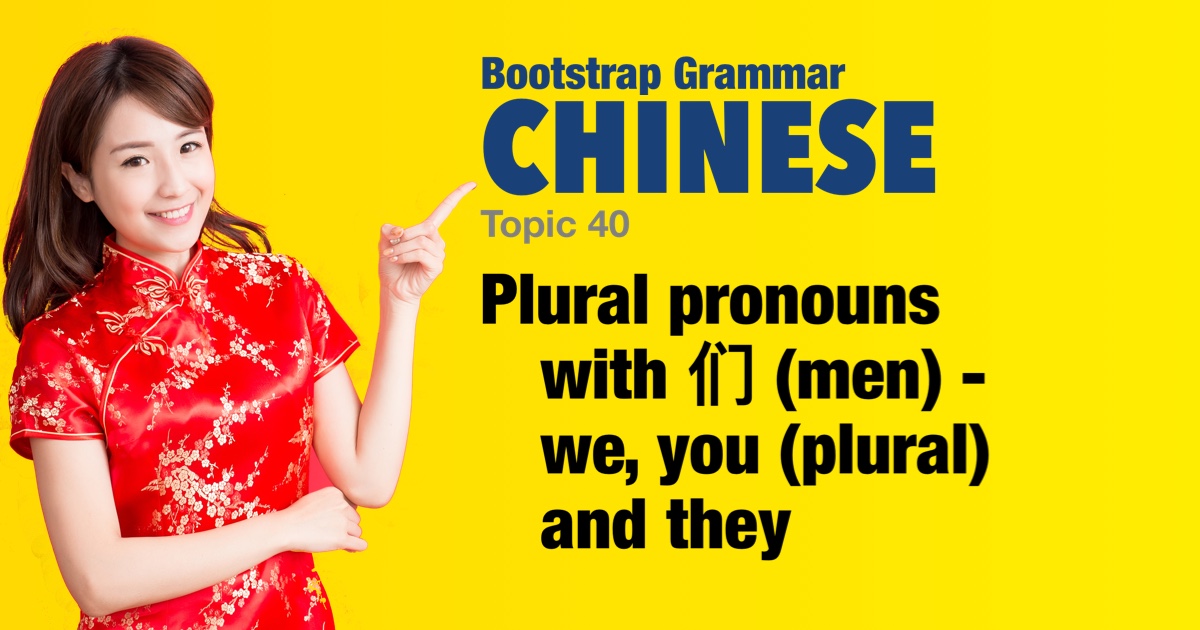Chinese grammar - Plural pronouns with 们 (men) - we, you (plural) and they |
|||
|
|||
In Chinese, the particle 们 (men) is appended to the singular personal pronouns to make them plural: • 我们 (wǒ men) means 'we' or 'us' • 你们 (nǐ men) means 'you (plural)' - as in 'you guys' • 他们 (tā men) means 'they' or 'them' • 她们 (tā men) means 'they' or 'them' for a group of exclusively females Caution that 们 can 'not' be attached to just any noun to form a plural. |
| Examples: | |
|
我们是中国人。
wǒ men shì zhōngguó rén. We are Chinese. |
|
|
他们是英国人。
tā men shì yīngguó rén. They are English. |
|
|
你们是日本人吗?
nǐ men shì rìběn rén ma? Are you guys Japanese?
|
|
|
我们很累。
wǒ men hěn lèi. We are tired.
|
|
|
你们要吃吗?
nǐ men yào chī ma? Do you (guys) want to eat? |
|
|
我们想要两张票。
wǒ men xiǎng yào liǎng zhāng piào. We would like two tickets. |
|
|
我们想看电影。
wǒ men xiǎng kàn diànyǐng. We would like to watch a movie. |
|
|
我们想见你们。
wǒ men xiǎng jiàn nǐ men. We would like to see you (guys). |
|
|
你们想做什么?
nǐ men xiǎng zuò shénme? What would you (plural) like to do?
|
|
|
你们想买什么?
nǐ men xiǎng mǎi shénme? What would you (plural) like to buy? |
|
 |
|



